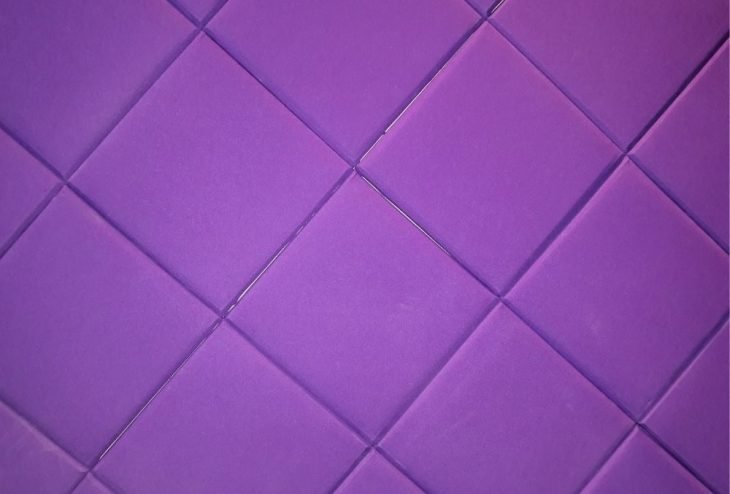After a hard day’s work, relaxing is the first thing a lot of people want to do when they get home. However, that can be hard when the noise of traffic follows you back to your humble abode.
A lot of people work night shifts frequently, meaning they have to sleep during the day. With traffic constantly ruining your peace, you need a way to help shut out the noise. Some ways are easier than others, but there are a lot of ways to help solve your problem.

Table of Contents
- Build Walls To Block The Noise
- Block Up Holes With Insulating Tape
- Install Soundproof Walls
- Put Obstacles In Your Garden
- Get Sound-Dampening Curtains
- Reinforce Your Windows
- Final Thoughts
Build Walls To Block The Noise
If you own the property that you live in, then building barriers can sometimes be a huge help.
Sound waves bounce off of surfaces that they face. For example, at the movie theatre, the room is designed for soundwaves to rebound off of the walls. This enhances the volume of noise experienced by movie-goers.
The taller and thicker the wall, the less noise will make it through and into your home. We appreciate that this can be an expensive option, however, it is a more long-term option!
We recommend that you build the wall around eight feet high to ensure maximum effectiveness. Once you’ve built your wall, the noise will reduce significantly and allow you the quiet you deserve.
A cheaper, alternative material to use is bamboo fencing, due to the light and sustainable nature of bamboo.
Block Up Holes With Insulating Tape
Almost every house in the world has little nooks and crannies. Usually, they wouldn’t cause you many, if any, problems. However, in this case, they can make a huge difference.
As mentioned before, sound bounces off of the objects in its way, meaning gaps in your home’s structure, like doorways and window frames, allow sounds to intrude your space.
One easy way to deal with these little gaps is to block them with insulating tape, preventing sound from slipping through the cracks.
Insulating tape is a common thing to find in your local DIY store or superstore and makes a huge difference at a low cost. However, it’s less of a long-term solution than building a wall.
Install Soundproof Walls
Ever wondered how musicians’ music is so clear and high-quality? A lot of it is down to the acoustics of the layering in the walls.
If able to do so, installing these effective walls can make a huge difference in keeping sound out of your house. These sound barriers can be made from a range of materials, such as wood, steel, insulating wool, and plastic.

The acoustic absorbing walls are best placed with a small gap behind them, in front of a reflective surface or a wall.
Like building a wall outside of your property, between your house and the source of the noise, these walls are a much longer and more effective way of reducing noise in your home. However, they are more expensive and require more planning.
Put Obstacles In Your Garden
This is a great one for many reasons and can offer great effectiveness against loud noises. Like having a wall between your home and the street, planting trees offer lots of obstacles between the sound source and you, making it harder for noises to pass through.
Another positive to take away from this method is that planting trees is great for the environment. Having more plant life around your property can massively clear the air and makes your garden look luscious and green.
The only downside to this way of suppressing sound is that you have to wait for the trees to grow before they provide you with sound relief unless you buy fully-grown trees.
Or, if planting trees isn’t your style then you can install something like a fountain. Whilst keeping your garden looking healthy and stylish, a fountain can easily drown out some of the noise produced from your nearby road.
The sounds of waterfalls and other water-based features have been used for decades as a method of de-stressing and meditation. Talk about achieving two goals with one action.
Get Sound-Dampening Curtains
Certain fabrics can block sound well, including acoustic fabric. Used frequently at theatres and music studios, these multi-purpose drapes can block out noise and keep your house looking normal.
Because windows can let in a lot of noise from the outside world, soundproofing your curtains can greatly reduce the amount of sound that can sneak its way into your house.
Reinforce Your Windows
One way of reducing the amount of noise that comes through your windows is to add storm windows to your list of options. Designed to protect your house against freak weather and high-speed winds, these thick windows can add extra layers of windows to your house that will reduce the sound allowed to enter your home.
These cost more than other options, like acoustic-absorbing curtains and insulating tape, however, they last a lot longer and are more durable in the long run.
Triple pane windows are another way of reinforcing some of the weakest points in your house. Made with thick, insulating glass, this option significantly drops the noise levels from the road and traffic from seeping into your home.
Not only that, but they’re energy-efficient and have been designed to help keep heat in to help you stay environmentally friendly.
Final Thoughts
Although a few of these options may not be for you, whether it be down to environmental or budgetary reasons, there’s plenty of methods to keep your house noise-free. It all depends on whether you’re looking for a short-term or a long-term fix. The short-term solutions seem to be cheaper than other, more durable options.
It’s always best to try and use a method that solves more than one problem at once. For example, fountains are calming and drown out the noise, planting trees is good for the environment and provides sound suppression.
It’s also important to remember that whatever you choose, you’re going to have to see it every day. So don’t go too overboard on the insulation tape!

Leave a Reply